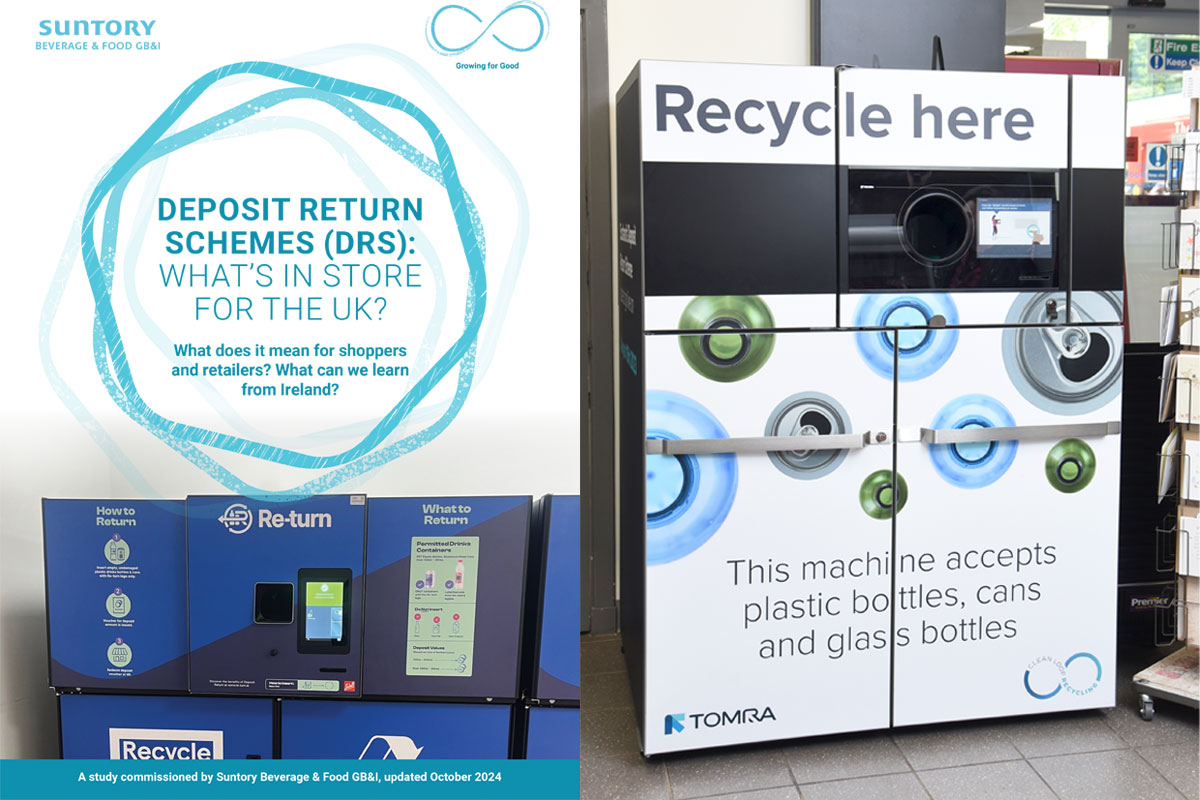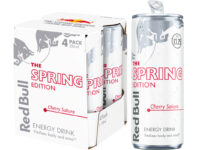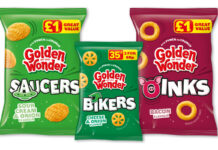Report highlights a success story for Irish scheme

DRINKS giant Suntory Beverage & Food (SBF) GB&I has launched its new deposit return scheme (DRS) report, highlighting the learnings the UK could take from the Irish scheme.
Dubbed the Deposit Return Scheme: What’s in Store for the UK? report, the new paper builds on what the firm launched in 2022 with a response to what Suntory has learned since the scheme launched in Ireland earlier this year.
Suntory has claimed that early results from Ireland tell a very positive story for DRS, with over half a billion containers returned since the start of the scheme in February.
Keith Allen, director for commercial sustainability at SBF GB&I, said: “There is a great opportunity to learn from the implementation of DRS in Ireland and we are committed to ensuring a successful rollout in the UK.”
To help support retailers here, Suntory has outlined a “three-stage mental shift model”, which discusses consumers’ reaction to the introduction of DRS in Ireland, and their eventual acceptance of the scheme.
The firm has called it the ‘Surprise, Review and Reset’ model, which outlines a seven week process that consumers undergo in adapting to the new normal of DRS.
The first three weeks is the ‘Surprise’ period, which SBF says is the most important time to educate shoppers during. These three weeks will see the initial surprise for shoppers who aren’t already aware of the scheme and the price increased across the containers.
SBF has said communication is crucial during this phase to not only encourage shoppers to return their containers, but to ensure retailers don’t miss out on any sales.
The next step is ‘Review’ which, again, lasts around three to four weeks and will see shoppers begin to adapt to the new routine and learn to navigate it to suit their own lifestyles.
Suntory reckons those retailers who have already made their store into a destination for DRS by this point will be able to benefit the most here, as more shoppers will recognise the store as being trustworthy.
Finally comes the ‘Reset’ phase, where consumers will settle into the new normal and make returning containers part of their daily life. It’s during this time that retailers can reinforce the personal effort that shoppers are making towards being more sustainable, a rising concern for plenty of consumers out there.
Allen said: “We know people will experience that initial moment of surprise at having to pay more upfront, and then return the container in good condition to reclaim their deposit, but it’s promising to see shoppers adapt and form new routines.
“We are on hand to support retailers on this journey, by sharing these lessons and opportunities that will help them prepare effectively.”
While the model lasts seven weeks, SBF has noted an impressive uptake in the scheme with redemption rates sitting at 88% with consumers, just slightly less than the 90% target.
Further to this, the firm has said that Irish retailers have reported a rise in consumer loyalty thanks, in part, to the scheme, with more shoppers educating their family members with visits to the store.
While the UK’s own scheme may still be another three years away, SBF reckons there will be plenty to learn from the Irish scheme as it develops further that the UK market could massively benefit from.
Michelle Norman, director of sustainability and external affairs at SBF Europe, said: “We know we have a significant role to play in the UK’s net-zero ambition and can help build a circular economy.
“However, we are held back from making faster progress towards these goals due to a poor supply of high-qualuty rPET, caused by low collection rates and underinvestment in recycling infrastructure.
“Delivering a functioning DRS would directly tackle these challenges and lower our carbon emissions. We are keenly aware that we cannot achieve ‘the brilliance of life’ without the brilliance of the Earth, and DRS will help us protect it for future generations.”





















